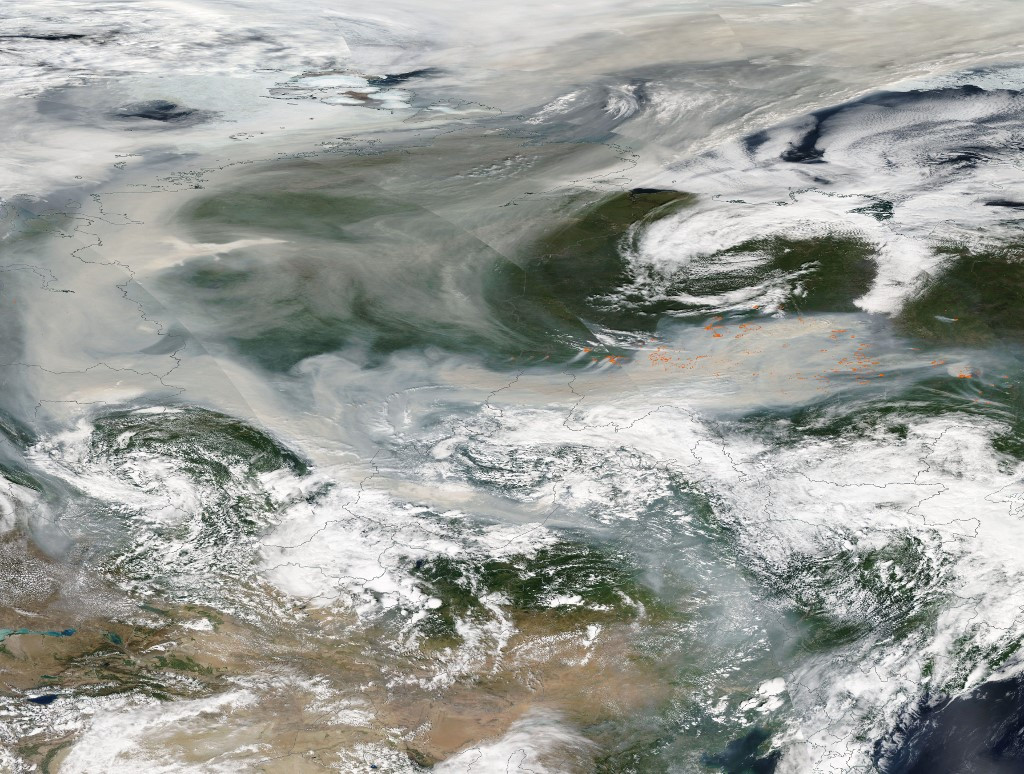Popular Reads
Top Results
Can't find what you're looking for?
View all search resultsPopular Reads
Top Results
Can't find what you're looking for?
View all search resultsSiberian wildfires worsen as smoke reaches North Pole
Change text size
Gift Premium Articles
to Anyone
A
Russian weather monitor said Monday that forest fires ravaging Siberia are worsening as NASA satellite images showed smoke from its burning forests reaching the North Pole.
Devastating forest fires have ripped across Siberia with increasing regularity over the past few years, which Russia's weather officials and environmentalists have linked to climate change and an underfunded forest service.
UN climate experts Monday published a report that shows unequivocally that global warming is unfolding more quickly than feared and that humanity is almost entirely to blame.
One of Siberia's hardest-hit regions this year has been Yakutia -- Russia's largest and coldest region that sits atop permafrost -- which has seen record-high temperatures and drought.
Russia's weather monitoring institute Rosgidromet said Monday that the situation in the region -- also known as Sakha -- "continues to deteriorate".
According to Rosgidromet, close to 3.4 million hectares (8.4 million acres) are currently burning in the region, including areas that are "difficult to access and remote".
On Saturday, US space agency NASA said its satellite images showed wildfire smoke travelling "more than 3,000 kilometres (1,800 miles) from Yakutia to reach the North Pole", calling it "a first in recorded history".
It added that on August 6 "most of Russia" was covered in smoke.
Environmentalists blame the authorities for letting large areas burn every year under a law that allows them not to intervene if the cost of fighting fires is greater than the damage caused or if they do not affect inhabited areas.
According to Russia's forestry agency, this year's fires have ravaged over 14 million hectares, making it the second-worst fire season since the turn of the century.
The head of Greenpeace Russia's forest programme, Alexei Yaroshenko, linked the growing area of Russia's wildfires with the effects of climate change as well as the "continuing decline of state forest management".











